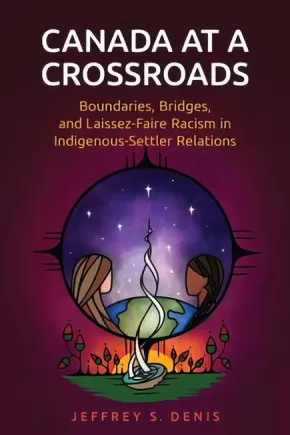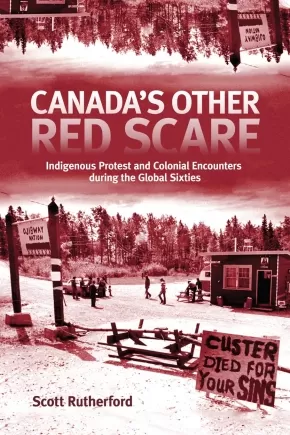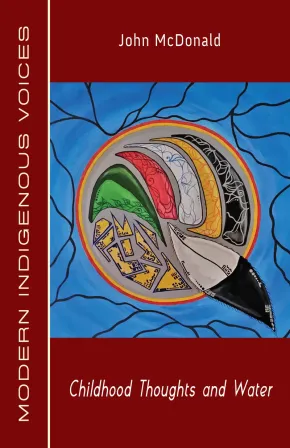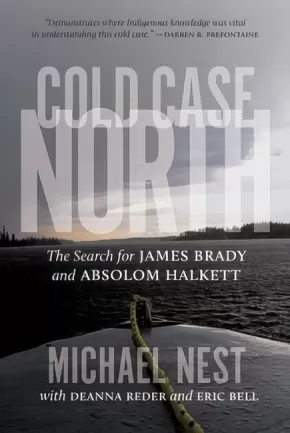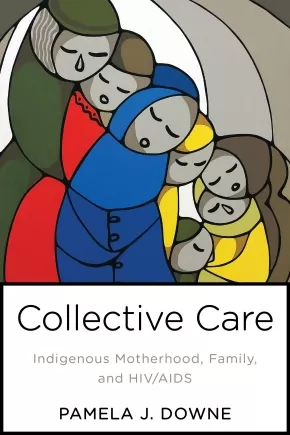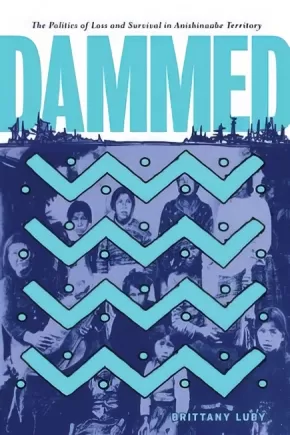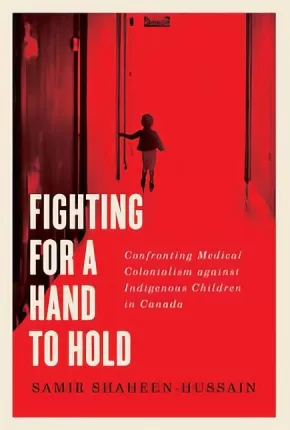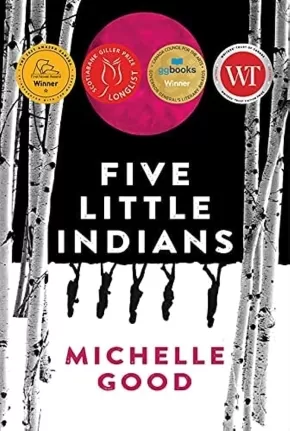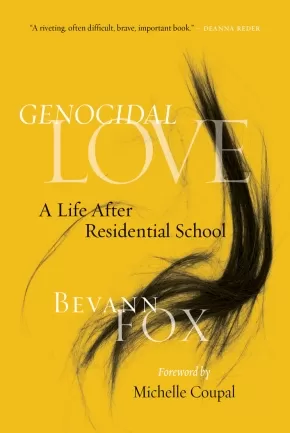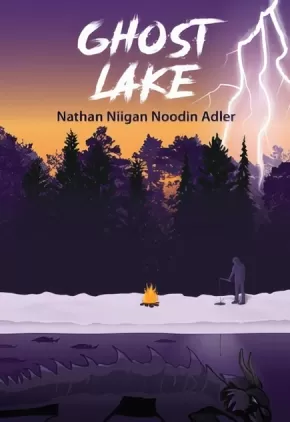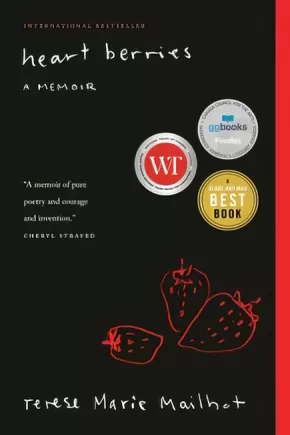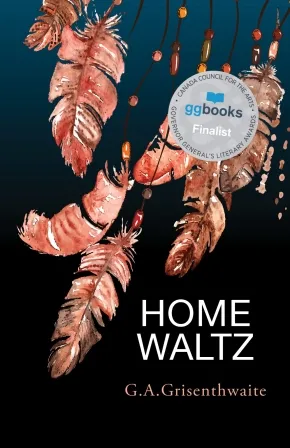Indigenous Peoples in Canada
Synopsis:
Synopsis:
A detailed transnational history of Indigenous activism in Northwestern Ontario and its global significance.
Indigenous activism put small-town northern Ontario on the map in the 1960s and early 1970s. Kenora, Ontario, was home to a four-hundred-person march, popularly called "Canada's First Civil Rights March," and a two-month-long armed occupation of a small lakefront park. Canada's Other Red Scare shows how important it is to link the local and the global to broaden narratives of resistance in the 1960s; it is a history not of isolated events closed off from the present but of decolonization as a continuing process. Scott Rutherford explores with rigour and sensitivity the Indigenous political protest and social struggle that took place in Northwestern Ontario and Treaty 3 territory from 1965 to 1974. Drawing on archival documents, media coverage, published interviews, memoirs, and social movement literature, as well as his own lived experience as a settler growing up in Kenora, he reconstructs a period of turbulent protest and the responses it provoked, from support to disbelief to outright hostility. Indigenous organizers advocated for a wide range of issues, from better employment opportunities to the recognition of nationhood, by using such tactics as marches, cultural production, community organizing, journalism, and armed occupation. They drew inspiration from global currents - from black American freedom movements to Third World decolonization - to challenge the inequalities and racial logics that shaped settler-colonialism and daily life in Kenora. Accessible and wide-reaching, Canada's Other Red Scare makes the case that Indigenous political protest during this period should be thought of as both local and transnational, an urgent exercise in confronting the experience of settler-colonialism in places and moments of protest, when its logic and acts of dispossession are held up like a mirror.
Reviews
"I was truly impressed with this book. Rutherford provides detailed insights into historical developments in the Kenora region and the post–World War II racism that is so fundamental in shaping current Indigenous realities. The almost seamless integration with global political commentary and international debates is simply superb. There are tough concepts presented here – and folks will find them uncomfortable – but a study like this is much overdue and will attract considerable international attention." - Ken Coates, Johnson-Shoyama Graduate School of Public Policy, University of Saskatchewan
Educator Information
Table of Contents
Acknowledgments / vii
Figures follow page viii
Introduction: The Town with a Bad Name / 3
1 Canada’s Alabama? Race, Racism, and the Indian Rights March in Kenora / 21
2 “Resolving Conflicts”: Culture, Development, and the Problem of Settlement / 40
3 “The quest for self-determination”: The Third World, Anti-colonialism, and “Red Power” / 62
4 “Nobody seems to listen”: The Violent Death Report and Resistance to Continuing Indifference / 83
5 The Anicinabe Park Occupation: Red Power and the Meaning of Violence in a Settler Society / 104
6 The Native People’s Caravan: Surveillance, Agents Provocateurs, and Multi-racial Coalitions / 124
Conclusion: Dear Louis Cameron / 145
Notes / 153
Bibliography / 187
Index / 203
Additional Information
208 pages | 5.98" x 9.01"
Synopsis:
Childhood Thoughts and Water is a collection of Beat Poetry, Spoken Word, Performance Art and Lyrical Verse. This is a work which journeys into the memories and events of an Urban Indigenous warrior's struggles to reconnect with a language and culture that is seemingly always almost out of reach. The common theme of reconnecting with nature and with water is interspersed with the imagery of childhood recollections and anecdotes about life and love, aspirations and defeats, and the desire to achieve greatness in spite of the obstacles and barriers inherent in a life lived on the fringes, in the shadows and on the streets, in the spotlight and behind the backstage curtain.
Educator & Series Information
This book is part of the Modern Indigenous Voices series.
Additional Information
80 pages | 5.50" x 8.50" | Paperback
Synopsis:
For fans of true crime, an unsolved mystery of missing persons, police conspiracies, and private investigations in an Indigenous community in northern Canada.
Métis leader James Brady was one of the most famous Indigenous activists in Canada. A communist, strategist, and bibliophile, he led Métis and First Nations to rebel against government and church oppression. Brady’s success made politicians and clergy fear him, and he had enemies everywhere.
In 1967, while prospecting in Saskatchewan with Cree Band Councillor and fellow activist Absolom Halkett, both men vanished without a trace from their remote lakeside camp. For 50 years rumours swirled of secret mining interests, political intrigue, assassination, and murder. Cold Case North is the story of how a small team, with the help of a local Indigenous community, exposed police failure in the original investigation, discovered new clues and testimony, and gathered the pieces of the North’s most enduring missing persons puzzle.
Reviews
“This engrossing account charts the efforts of three dedicated people to determine the fate of two missing Indigenous men in the north of Canada. [...] Meticulously researched, this smoothly written tale of injustice showcases the authors’ tenacity and arouses the reader’s indignation. This is a scathing rebuke of the RCMP’s failure to take the case of missing Indigenous people seriously.” —Publisher's Weekly
“Like too many cases involving missing and murdered Indigenous people, authorities failed to ensure that Brady and Halkett’s deaths were properly investigated. This book helps get to the bottom of the fate of these two men, and demonstrates why investigators should never dismiss the knowledge of Indigenous peoples.” —Darren Prefontaine, author of Gabriel Dumont
“Cold Case North is part true crime thriller, part gripping mystery about the disappearance of Métis legend James Brady and Absolom Halkett in northern Saskatchewan. It is also about Indigenous knowledge, investigative incompetence, and the stuff of legend.” —Paul Seesequasis, author of Blanket Toss Under Midnight Sun
“A fascinating search for the truth, Cold Case North unravels the layers of a decades’ old mystery. It is about how communities hold knowledge for generations, and how missing loved ones are never forgotten.” —Katherena Vermette, author of River Woman and The Break
Additional Information
272 pages | 5.00" x 7.00"
Synopsis:
Collective Care provides an ethnographic account of urban Indigenous life and caregiving practices in the face of Saskatchewan’s HIV epidemic. Based on a five-year study conducted in partnership with AIDS Saskatoon, the book focuses on the contrast between Indigenous values of collective kin-care and non-Indigenous models of intensive maternal care. It explores how women and men negotiate the forces of HIV to render motherhood a site of cultural meaning, personal and collective well-being, and, sometimes, individual and community despair. It also introduces readers to how HIV is Indigenized in western Canada and how all HIV-affected and -infected mothers must negotiate this cultural and racialized terrain.
Featuring in-depth narrative interviews, notes from participant observation in AIDS Saskatoon’s drop-in centre, and a photovoice component, this book offers an accessible account of an engaged anthropologist’s work with a community that is both vulnerable and resilient. Each chapter begins with an ethnographic vignette that introduces central concepts, including medical anthropology, syndemics, kinship, and Indigeneity, with the overall aim of humanizing those affected by HIV in western Canada and beyond.
Reviews
"By sharing perspectives that are often ignored, this work provides important insight not found elsewhere. The reliance on the words of Indigenous women is a wonderful example of the kind of allyship we have been calling for. Rather than speaking for the women, Pamela J. Downe has created a literary space where they can speak for themselves. The truth of their stories comes through in vibrant quotes about loving and raising children in a collective way." — Dawn Lavell-Harvard, Director of the First Peoples House of Learning, Trent University, and former President of the Native Women’s Association of Canada
"Collective Care icontributes to our understanding of Indigenous family life and the lives of those affected by HIV/AIDS. Because the book focuses on family relationships and care in a context that is somewhat familiar to students, yet different from more frequently studied communities with HIV/AIDS. This book will be a useful tool for teaching." — William McKellin, Assistant Professor in the Department of Anthropology, University of British Columbia
Educator Information
Table of Contents
Preface
Chapter 1: Beginning
Chapter 2: Family
Chapter 3: Motherhood
Chapter 4: Fatherhood
Chapter 5: Loss
Chapter 6: Love
Chapter 7: Closing
References
Additional Information
176 pages | 6.00" x 9.00" | Paperback
Synopsis:
Dammed: The Politics of Loss and Survival in Anishinaabe Territory explores Canada’s hydroelectric boom in the Lake of the Woods area. It complicates narratives of increasing affluence in postwar Canada, revealing that the inverse was true for Indigenous communities along the Winnipeg River.
Dammed makes clear that hydroelectric generating stations were designed to serve settler populations. Governments and developers excluded the Anishinabeg from planning and operations and failed to consider how power production might influence the health and economy of their communities. By so doing, Canada and Ontario thwarted a future that aligned with the terms of treaty, a future in which both settlers and the Anishinabeg might thrive in shared territories.
The same hydroelectric development that powered settler communities flooded manomin fields, washed away roads, and compromised fish populations. Anishinaabe families responded creatively to manage the government-sanctioned environmental change and survive the resulting economic loss. Luby reveals these responses to dam development, inviting readers to consider how resistance might be expressed by individuals and families, and across gendered and generational lines.
Luby weaves text, testimony, and experience together, grounding this historical work in the territory of her paternal ancestors, lands she calls home. With evidence drawn from archival material, oral history, and environmental observation, Dammed invites readers to confront Canadian colonialism in the twentieth century.
Additional Information
256 pages | 6.00" x 9.00" | 2 maps, index, bibliography
Synopsis:
This guide is designed to educate non-Indigenous counsellors on the impacts of the assimilation policies that still affect Indigenous people and communities. Mainstream counselling approaches are integrated with Indigenous spiritual healing practices for Indigenous clients and their families who have been impacted by sexual abuse. Indigenous cultures contain many strategies to help those who have been traumatized, and sharing this traditional knowledge with service providers will assist in the understanding of how to incorporate cultural strategies in their practices.
This book provides exercises and handouts.
Reviews
"I found this guide to be of tremendous benefit as an important first step for reconciliation for social workers, counsellors and psychologists in the era of reconciliation. This guide provides a literature review combined with a detailed list of practice activities and case illustrations to show of how traditional healing ceremonies and traditions can be used effectively with counselling." — Donalda Halabuza, PhD, Faculty of Social Work, University of Regina
"Decolonizing the Healing Process from Sexual Trauma is a riveting journey into the acquired base of a skilled therapist. Educating those in the mental health field, McArthur gently offers culturally appropriate guidance when working with First Nations people who have experienced sexual abuse." — Cyndi Gray Williams, MSW, RSW, DVATI, RCAT, SEP, Registered and Licensed Art Therapist, Master’s Prepared and Registered Clinician, Somatic Experiencing (TM) Trauma Practitioner
Additional Information
66 pages | 6.00" x 9.00"
Synopsis:
From the author of the YA-crossover hit The Marrow Thieves, a propulsive, stunning and sensuous novel inspired by the traditional Métis story of the Rogarou--a werewolf-like creature that haunts the roads and woods of Métis communities. A messed-up, grown-up, Little Red Riding Hood.
Broken-hearted Joan has been searching for her husband, Victor, for almost a year--ever since he went missing on the night they had their first serious argument. One terrible, hungover morning in a Walmart parking lot in a little town near Georgian Bay, she is drawn to a revival tent where the local Métis have been flocking to hear a charismatic preacher named Eugene Wolff. By the time she staggers into the tent, the service is over. But as she is about to leave, she hears an unmistakable voice.
She turns, and there Victor is. The same face, the same eyes, the same hands. But his hair is short and he's wearing a suit and he doesn't recognize her at all. No, he insists, she's the one suffering a delusion: he's the Reverend Wolff and his only mission is to bring his people to Jesus. Except that, as Joan soon discovers, that's not all the enigmatic Wolff is doing.
With only the help of Ajean, a foul-mouthed euchre shark with a knowledge of the old ways, and her odd, Johnny-Cash-loving, 12-year-old nephew Zeus, Joan has to find a way to remind the Reverend Wolff of who he really is. If he really is Victor. Her life, and the life of everyone she loves, depends upon it.
Reviews
“Empire of Wild will not let you go. Mix werewolves unlike you’ve ever read before with the mythos-expanding struggles of American Gods and blend with Cherie Dimaline’s newest heroine, the complex and wonderful Joan of Arcand, and the result is inventive, engrossing, poetic and thrilling. Empire is Dimaline’s most accomplished book yet.” —Eden Robinson, author of Monkey Beach and the Trickster trilogy
“Cherie Dimaline has written a wondrous and deeply felt novel about hypocrisy, power imbalance and the strange, dangerous space between reality and belief. Dimaline is one of the most honest and fearless writers of her generation, and Empire of Wild is an honest and fearless book.” —Omar El Akkad, author of American War
“A magical, electric novel that merges our modern urban world with the mythology of an uncolonized landscape. Dimaline’s descriptions are vivid and sordid and so, so alive. She creates a whole world of hope and hatred in the figure of a hot man in a ’79 Impala, and then takes you into the woods where a wolf dressed in a fine suit threatens to swallow you whole in disturbingly erudite language. The wonders of Indigenous values and their struggle to survive against insidious Western ideology and culture are framed in a wild adventure that cements Dimaline’s talents as a magical realist provocatrice.” —Heather O’Neill, author of The Lonely Hearts Hotel
“Empire of Wild is doing everything I love in a contemporary novel and more. It is tough, funny, beautiful, honest and propulsive—all the while telling a story that needs to be told by a person who needs to be telling it. The book feels like now, and we need more stories from Native communities to feel that way. She knows this community and this community will know she knows it when they read her, but it will resonate with so many more. Cherie Dimaline is a voice that feels both inevitable and necessary.” —Tommy Orange, author of There There
Educator Information
This book is available in French: Rougarou
Additional Information
320 pages | 5.14" x 7.99" | Paperback
Synopsis:
Field Notes for the Self is a series of dark meditations: spiritual exercises in which the poem becomes a forensics of the soul. The poems converse with Patrick Lane, John Thompson, and Charles Wright, but their closest cousins may be Arvo Pärt’s tintinnabulations—overlapping structures in which notes or images are rung slowly and repeatedly like bells. The goal is freedom from illusion, freedom from memory, from “the same old stories” of Lundy’s violent past; and freedom, too, from the unreachable memories of the violence done to his Indigenous ancestors, which, Lundy tells us, seem to haunt his cellular biology. Rooted in exquisitely modulated observations of the natural world, the singular achievement of these poems is mind itself, suspended before interior vision like a bit of crystal twisting in the light.
Reviews
“Here is a poet of whom one can say—quietly, simply, with gratitude—that highest of praises: the real thing.” —Jane Hirshfield, author of The Beauty
“Randy Lundy has entered the place where the masters reside…” —Patrick Lane, author of Washita
Educator & Series Information
This work is part of the Oskana Poetry & Poetics series. Publishing new and established authors, Oskana Poetry & Poetics offers both contemporary poetry at its best and probing discussions of poetry’s cultural role. Oskana is the Cree word for "bones," and it is used with the blessing of Elder Noel Starblanket. The name reflects a commitment to speak to the deepest and most urgent issues of our time, including environmental crisis and Indigenous justice.
Additional Information
96 pages | 5.50" x 8.50"
Synopsis:
An exploration of anti-Indigenous systemic racism in Canadian health care and the medical establishment's role in colonial genocide.
Launched by healthcare providers in January 2018, the #aHand2Hold campaign confronted the Quebec government's practice of separating children from their families during medical evacuation airlifts, which disproportionately affected remote and northern Indigenous communities. Pediatric emergency physician Samir Shaheen-Hussain's captivating narrative of this successful campaign, which garnered unprecedented public attention and media coverage, seeks to answer lingering questions about why such a cruel practice remained in place for so long. In doing so it serves as an indispensable case study of contemporary medical colonialism in Quebec.
Fighting for a Hand to Hold exposes the medical establishment's role in the displacement, colonization, and genocide of Indigenous peoples in Canada. Through meticulously gathered government documentation, historical scholarship, media reports, public inquiries, and personal testimonies, Shaheen-Hussain connects the draconian medevac practice with often-disregarded crimes and medical violence inflicted specifically on Indigenous children. This devastating history and ongoing medical colonialism prevent Indigenous communities from attaining internationally recognized measures of health and social well-being because of the pervasive, systemic anti-Indigenous racism that persists in the Canadian public health care system - and in settler society at large.
Shaheen-Hussain's unique perspective combines his experience as a frontline pediatrician with his long-standing involvement in anti-authoritarian social justice movements. Sparked by the indifference and callousness of those in power, this book draws on the innovative work of Indigenous scholars and activists to conclude that a broader decolonization struggle calling for reparations, land reclamation, and self-determination for Indigenous peoples is critical to achieve reconciliation in Canada.
Reviews
"Fighting for a Hand to Hold denounces with ferocity the utterly inhuman, decades-long practice of separating children from their families during emergency medevacs in northern and remote regions of Quebec. In a precise, compelling, and well-documented narrative, Samir Shaheen-Hussain challenges our collective understanding of systemic racism and social determinants of health applied to Indigenous communities most dependent on medevac airlifts and most impacted by the non-accompaniment rule. An eye-opening, tough, and essential book." — Dr Joanne Liu, pediatric emergency physician and former international president of Médecins Sans Frontières
"In Fighting for a Hand to Hold Samir Shaheen-Hussain exposes the social, cultural, and historical structures that allow medical colonialism to hide in plain sight as it harms generations of Indigenous children and their families. It is an unflinching analysis that should be required reading in every medical school in the country." —Maureen Lux, professor, Brock University and author of Separate Beds: A History of Indian Hospitals in Canada, 1920s-1980s
"The memories of the Inuit children I attended as a young interpreter at the Montreal Children's Hospital came flooding back to me. The sad face of a child looking up at me: nurses informed me that he was not speaking, but I immediately recognized the fear in his face, in his eyes. As soon as I spoke to him in Inuktitut, he looked at me in disbelief, but in the next moment his tears began to roll and I could only sound out the Inuit sound of love, 'mmph,' and tell him it would be all right, that his mom or a relative would be arriving soon. I felt for that child, and as he began to relax and open up, we had a lovely conversation in Inuktitut. He did not feel so alone in this strange place he had just been deposited in, as if he were cargo. To this day, I still feel for him. Throughout all these years, we all have been made to believe that this is how things should work. It was one of those things we stayed quiet about for decades. But no longer. We Inuit, we are a people. We love our children. Fighting for a Hand to Hold helps us understand the issues of colonization in the medical system that have vexed us as Indigenous peoples. Today, we Inuit are working to bring our health back to our communities. Healthy communities and families mean self-governance to us, and the decolonization process will happen." - Lisa Qiluqqi Koperqualuk, vice-president of international affairs, Inuit Circumpolar Council Canada
Educator Information
Foreword by Cindy Blackstock, afterword by Katsi'tsakwas Ellen Gabriel
Table of Contents
Figures | xiii
Foreword Cindy Blackstock | xv
Preface and Acknowledgments | xxi
A Note to Readers | xxix
Part One Above All, Do No Harm
Timeline | 3
Introduction | 7
1 Medevac Airlifts in Quebec and the Non-Accompaniment Rule | 16
2 The #aHand2Hold Campaign: Confronting a System | 27
Part Two Structural Fault Lines in Health Care
3 Social Determinants of Health: Equality, Equity, and Limitations | 47
4 Recognizing Systemic Racism: A Social Justice Approach | 66
5 Medical Culture and the Myth of Meritocracy | 90
Part Three Medical Colonialism and Indigenous Children
6 A Little Matter of Genocide: Canada and the United Nations Convention | 113
7 From the Smallpox War of Extermination to Tuberculosis Deaths in Residential Schools | 122
8 Experimental Laboratories: Malnutrition, Starvation, and the BCG Vaccine | 135
9 Cruel Treatment: Indian Hospitals, Sanatoria, and Skin Grafting | 150
10 Gendered Violence: Forced Sterilization and Coercive Contraception | 165
11 Breaking Up Families: Child Welfare Services, Mass Evacuations, and Medical Disappearances | 179
12 Oral Histories and the Narrative of Genocide | 207
Part Four The Structural Determinants of Health and Decolonizing Our Future
13 Capitalism and the Cost of Caring | 217
14 History Matters: Colonialism, Land, and Indigenous Self-Determination | 236
15 Decolonizing Health Care: Reparations before Reconciliation | 253
Conclusion | 271
Afterword Katsi’tsakwas Ellen Gabriel | 277
References | 283
Index | 315
Additional Information
360 pages | 5.98" x 9.01" | 4 maps, 8 illustrations | Hardcover
Synopsis:
Taken from their families when they are very small and sent to a remote, church-run residential school, Kenny, Lucy, Clara, Howie and Maisie are barely out of childhood when they are finally released after years of detention.
Alone and without any skills, support or families, the teens find their way to the seedy and foreign world of Downtown Eastside Vancouver, where they cling together, striving to find a place of safety and belonging in a world that doesn’t want them. The paths of the five friends cross and crisscross over the decades as they struggle to overcome, or at least forget, the trauma they endured during their years at the Mission.
Fuelled by rage and furious with God, Clara finds her way into the dangerous, highly charged world of the American Indian Movement. Maisie internalizes her pain and continually places herself in dangerous situations. Famous for his daring escapes from the school, Kenny can’t stop running and moves restlessly from job to job—through fishing grounds, orchards and logging camps—trying to outrun his memories and his addiction. Lucy finds peace in motherhood and nurtures a secret compulsive disorder as she waits for Kenny to return to the life they once hoped to share together. After almost beating one of his tormentors to death, Howie serves time in prison, then tries once again to re-enter society and begin life anew.
With compassion and insight, Five Little Indians chronicles the desperate quest of these residential school survivors to come to terms with their past and, ultimately, find a way forward.
Awards
- Amazon Canada First Novel Award
- 2020 Governor General's Literary Award for English-language fiction
- 2022 Canada Reads Winner
Educator Information
Winner of the 2018 HarperCollins/UBC Price for Best New Fiction, Michelle Good's Five Little Indians is told from alternating points of view of five former residential school students as they struggle to survive in 1960s Vancouver.
Additional Information
304 pages | 6.00" x 9.00"
Synopsis:
How can we heal in the face of trauma? How can we transform intergenerational pain into a passion for community and healing?
Presenting herself as “Myrtle,” residential school survivor and Indigenous television personality Bevann Fox explores essential questions by recounting her life through fiction. She shares memories of an early childhood filled with love with her grandparents—until she is sent to residential school at the age of seven. Her horrific experiences of abuse there left her without a voice, timid and nervous, never sure, never trusting, affecting her romantic relationships and family bonds for years to come.
This is the story of Myrtle battling to recover her voice. Genocidal Love is a powerful confirmation of the long-lasting consequences of residential school violence —and a moving story of finding a path towards healing.
Awards
- 2021 Indigenous Voices Awards winner for Published Prose in English: Creative Nonfiction and Life-Writing
Reviews
“A riveting, often difficult, brave, important book. ” —Deanna Reder, Chair, Department of Indigenous Studies, Simon Fraser University
“A riveting and courageous reflection. . . . Genocidal Love is unique in its detailed account of the often re-traumatizing effects of the legal and bureaucratic barriers of compensation programs predating the Truth and Reconciliation Commission. ” —Jesse Rae Archibald-Barber, editor of kisiskâciwan and co-editor of Performing Turtle Island
“Fox tears beauty from the jaws of genocide, daring to claim love beyond settler imaginings—love that nurtures decolonial futures and makes possible a more just world. ”—Sam McKegney, author of Magic Weapons and Masculindians
Educator Information
A forward from Michelle Coupal explains more about "Genocidal Love—a story that Bevann tells about herself outside the boundaries of what constitutes fiction and non-fiction".
Additional Information
256 pages | 5.00" x 7.00"
Synopsis:
In Ojibwe cosmology there are thirteen moons...
And in the pages of Ghost Lake are thirteen stories featuring an interrelated cast of characters and their brushes with the mysterious. Issa lives in fear of having her secret discovered, Aanzheyaawin haunts the roads seeking vengeance, Zaude searches for clues to her brother’s death, Garion wrestles with his sexual inclinations, Fanon struggles against an unexpected winter storm, Kylie fights to make it back to shore, Eadie and Mushkeg share a magical night, Tyner faces brutal violence, and Tyler, Clay, and Dare must make amends to the spirits before it’s too late. On the northern Ontario reserve of Ghost Lake the precolonial past is not so distant, and nothing is ever truly lost or destroyed. Because the land remembers.
Awards
- 2021 Indigenous Voices Awards winner for Published Prose in English: Fiction
Reviews
“Adler gifts us with this collection of intense life and death stories that straddle the worlds of the everyday and the fantastic. These stories challenge the notion of default reality and Adler crafts them with a deft hand.”—Michelle Good, author of Five Little Indians
“Ghost Lake is the border to all things known—but not in the way wider society conceives them: there is no lighthouse imposing its dichotomy on the darkness. It invites recovery and connection from its characters beautifully; story, memory, and relationship build the landscape for them to walk on. The people of Ghost Lake move through experiences with a curiosity and bravery that I hope all readers have—where there are no experts to place rules on a community’s desire to remember. We need more collections like this.”—Tyler Pennock, author of Bones
“A memorable, necessary read, Nathan Adler’s remarkable collection Ghost Lake delves into the life-changing passages of love and loss, revenge and redemption, survival and discovery. His vital, authentic characters journey through a world in which the boundary between the so-called real and the illusory—the realm of mysteries, spirits, and myths—is itself revealed to be the illusion. These imaginative, expertly crafted stories are guaranteed to illuminate and stir, to challenge and entertain.” —Daniel Scott Tysdal, author of The Writing Moment: A Practical Guide to Creating Poems
Educator Information
An interconnected collection of stories set on the fictional Northern Ontario Reserve of Ghost Lake, featuring a cast of interrelated characters and their encounters with the supernatural and other phenomenon, with themes ranging from love, loss, and relationships, to the meaning of monstrosity, violence, tragedy, and justice.
Ghost Lake is the sequel to Nathan Adler's debut horror novel, Wrist.
Pyromaniacs, vigilantes, mysterious phenomena, prehistoric beasts, cryptid species, grave robbers and ghosts… the stories of Ghost Lake feature a cast of interrelated characters and their brushes with the supernatural, creatures of Ojibwe cosmology, the Spirit World, and with monsters, both human and otherwise. Nathan Niigan Noodin Adler shows us that the precolonial past is not so distant, that history informs the present, and nothing is ever truly lost or destroyed, because the land remembers.
Additional Information
320 pages | 5.50" x 8.00"
Synopsis:
Guileless and refreshingly honest, Terese Mailhot's debut memoir chronicles her struggle to balance the beauty of her Native heritage with the often desperate and chaotic reality of life on the reservation.
Heart Berries is a powerful, poetic memoir of a woman's coming of age on the Seabird Island Indian Reservation in British Columbia. Having survived a profoundly dysfunctional upbringing only to find herself hospitalized and facing a dual diagnosis of Post Traumatic Stress Disorder and Bipolar II, Terese Mailhot is given a notebook and begins to write her way out of trauma. The triumphant result is Heart Berries, a memorial for Mailhot's mother, a social worker and activist who had a thing for prisoners; a story of reconciliation with her father--an abusive drunk and a brilliant artist--who was murdered under mysterious circumstances; and an elegy on how difficult it is to love someone while dragging the long shadows of shame.
Mailhot "trusts the reader to understand that memory isn't exact, but melded to imagination, pain and what we can bring ourselves to accept." Her unique and at times unsettling voice graphically illustrates her mental state. As she writes, she discovers her own true voice, seizes control of her story and, in so doing, reestablishes her connection to her family, to her people and to her place in the world.
Educator Information
This book is available in French: Petite Femme Montagne
Additional Information
144 pages | 5.00" x 7.50" | Paperback
Synopsis:
In 1973, fifteen-year old, or "Squito" Bob, is a mixed-blood NłeᎮkepmx boy trying to find his place in a small, mostly Native town. His closest friends are three nłeᎮkepmx boys and a white kid, an obnoxious runt who thinks himself superior to his friends. Accepted as neither Native nor white, Squito often feels like the stray dog of the group and envisions a short, disastrous life for himself. HOME WALTZ follows the boys over thirty-six hours on what should be one of the best weekends of their lives. With a senior girls volleyball tournament in town, Squito's favourite band performing, and enough alcohol for ten people, the boys dream of girls, dancing and possibly romance. A story of love, heartbreak and tragedy, HOME WALTZ delves into suicide, alcohol abuse, body image insecurities, and systemic racism. A coming of age story like no other, HOME WALTZ speaks to one indigenous youth's experience of growing up in a world that doesn't want or trust him.
Reviews
"In Squito Bob, Gordon Grisenthwaite has given us a latter-day Holden Caufield, fighting hormones, toxic friendships, and the general stupidity of others in the fleeting hope of his own brief shot at transcendence. Home Waltz is a tour de force, full of compassion and insight and humour and utterly unflinching in its look at the hard truths of life on the res." —Nino Ricci, author of Lives of the Saints, and Testament
"Grisenthwaite weaves the classic coming-of-age tale into a story of deep grief and longing for place, the unfair treatment of First Nations people, but also the heart and kinship of First Nation’s communities."—Crystal Mackenzie, Freefall Magazine
Additional Information
304 pages | 5.25" x 8.25" | Paperback

